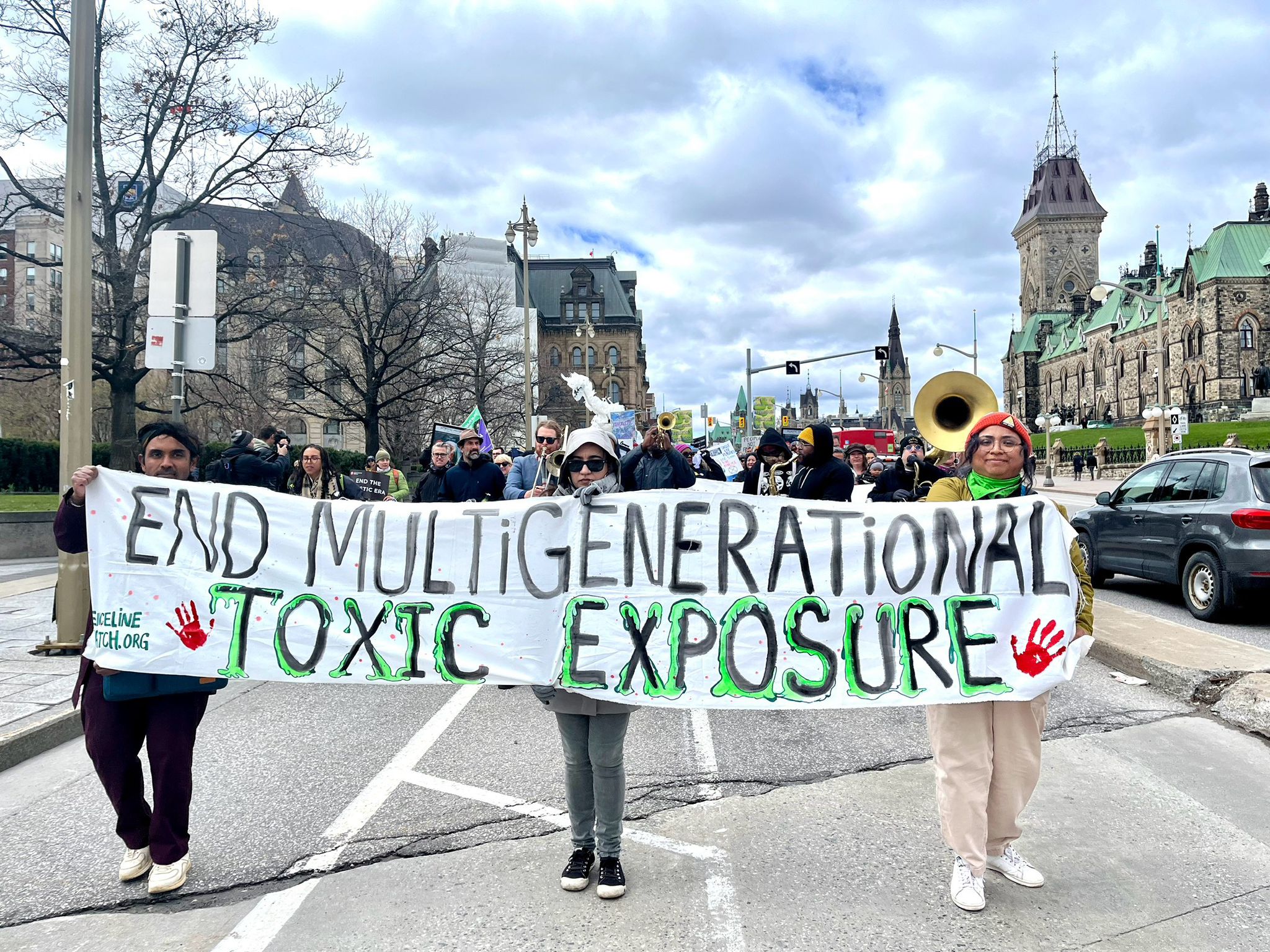Read about the March to End the Plastic Era: https://bit.ly/INC4march
Translations in French and Spanish will be available here.
Background:
Civil society groups from around the world came together in a mass mobilization at the fourth session of the Intergovernmental Negotiating Committee (INC-4) for a Global Plastics Treaty in Ottawa, Canada, as well as in different satellite actions in multiple locations globally, to center the goals and values of communities most impacted by the plastic lifecycle. The march took place on 21 April 2024 (Sunday) at Parliament Hill and the Shaw Center to remind governments who exactly they are negotiating for at the INC.
Demands for delegates:
These are the key demands from the civil society groups for delegates at INC-4:
- Use a human rights-based approach for the negotiation of the plastics treaty, including centering the knowledge, voices, and experiences of people living on the frontlines of the crisis, Indigenous Peoples, workers, youth and other rights-holding constituencies.
- Ensure that the inherent Rights of Indigenous Peoples are respected and upheld in the negotiation process, the treaty text, and its implementation.
- Ensure that the treaty includes provisions to address the crisis across the entire life cycle of plastics, acknowledging that the life cycle begins with the extraction of raw materials and it covers the production of plastics, its feedstocks, and precursors.
- Limit and reduce plastic production as a non-negotiable requirement to end plastic pollution.
- Include provisions to eliminate and phase out toxic chemicals and additives in all virgin, recycled, and alternative plastics. Ensure globally harmonized transparency requirements for the chemical composition of plastics.
- Support non-toxic reuse systems, and reject the idea of a “circular economy for plastics.”
- Follow the waste hierarchy in the approach to addressing this crisis: prevention, re-use, recycling, recovery and finally disposal. Reject false solutions.
- Set strong regulations on plastic waste trade to ensure an end to waste colonialism.
- Ensure the provision on Just Transition achieves a true Just Transition for impacted communities and workers across the entire plastics life cycle.
- Include non-Party provisions to incentivize ratification of the treaty and to ensure a level playing field for all countries.
- Ensure adequate financial resources for countries to be able to implement the provisions of the treaty, including setting up a dedicated financial mechanism.
- Set up strong conflict of interest policies that protect the treaty negotiations and its implementation from the vested interests of industries that are profiting off of the crisis.




